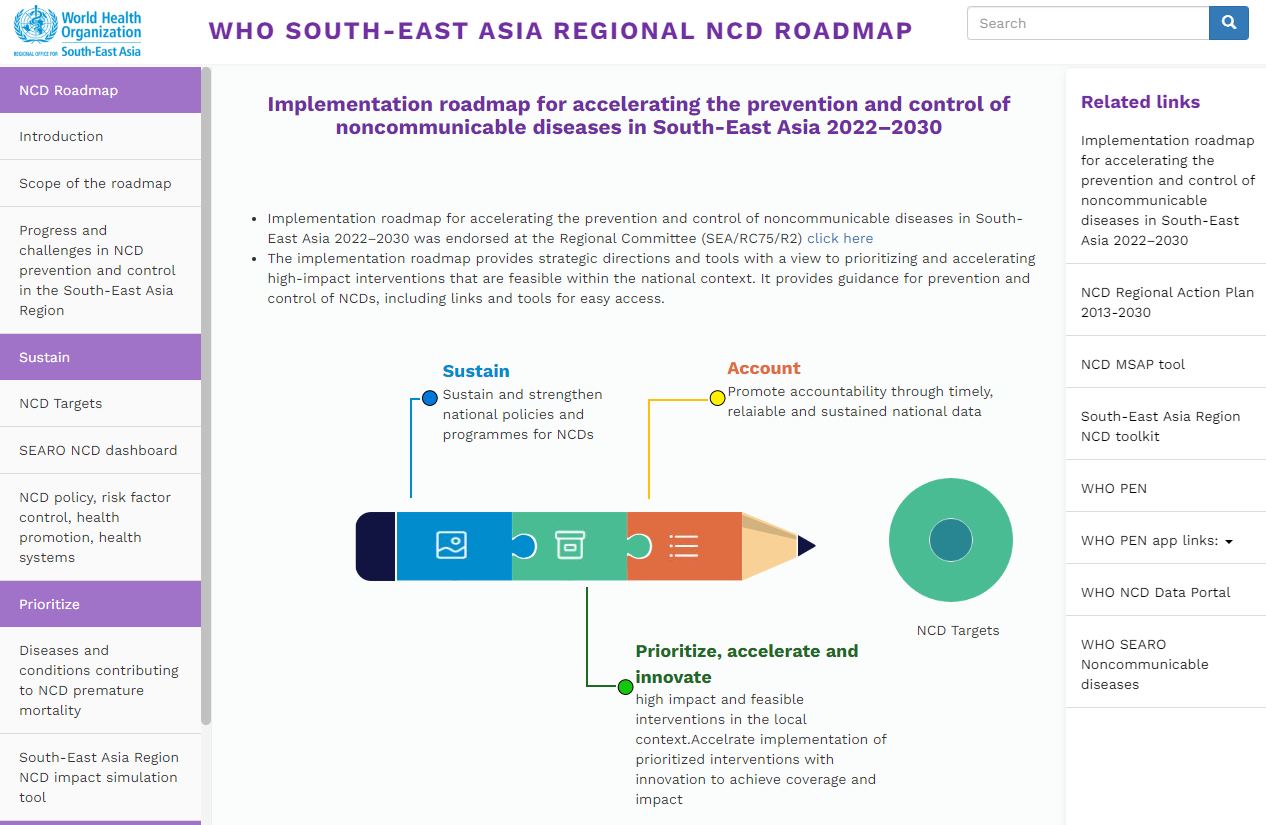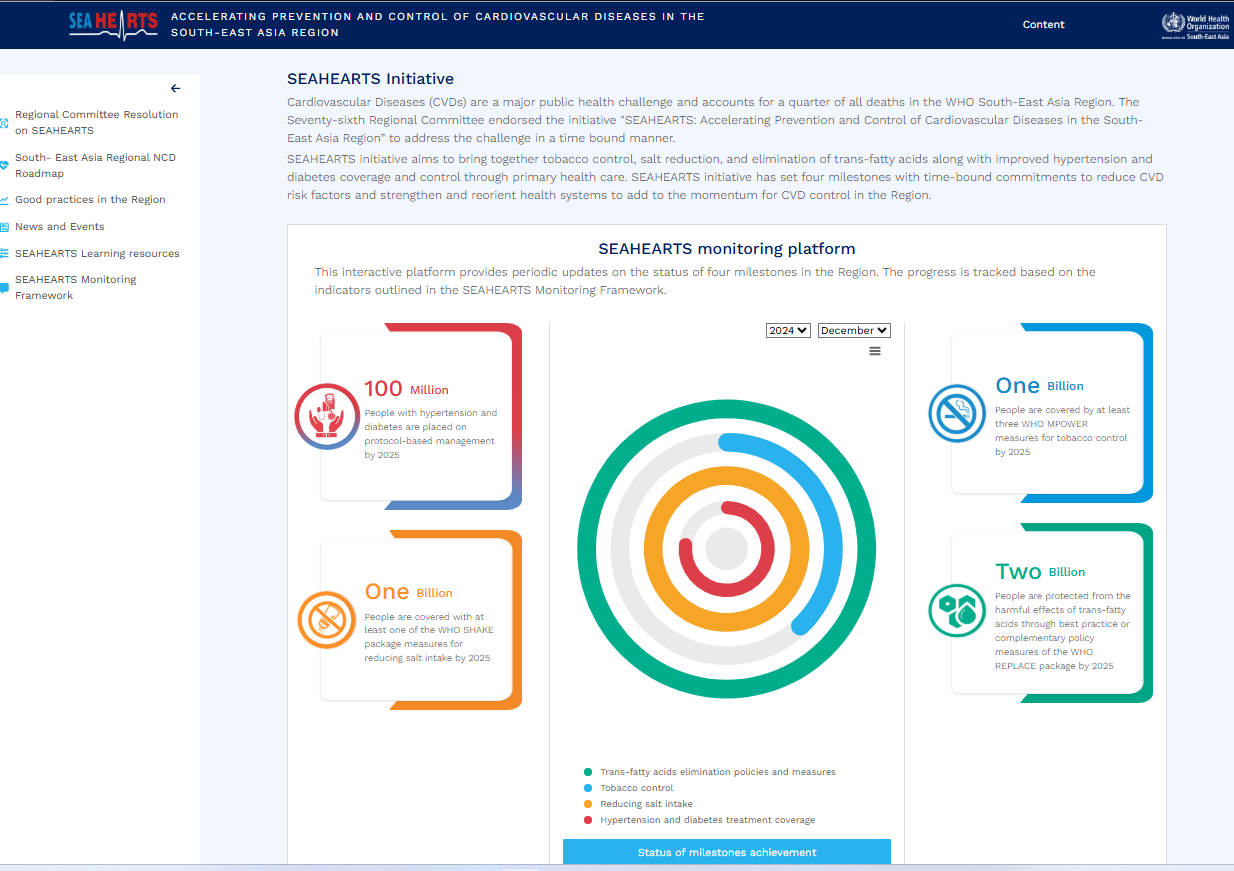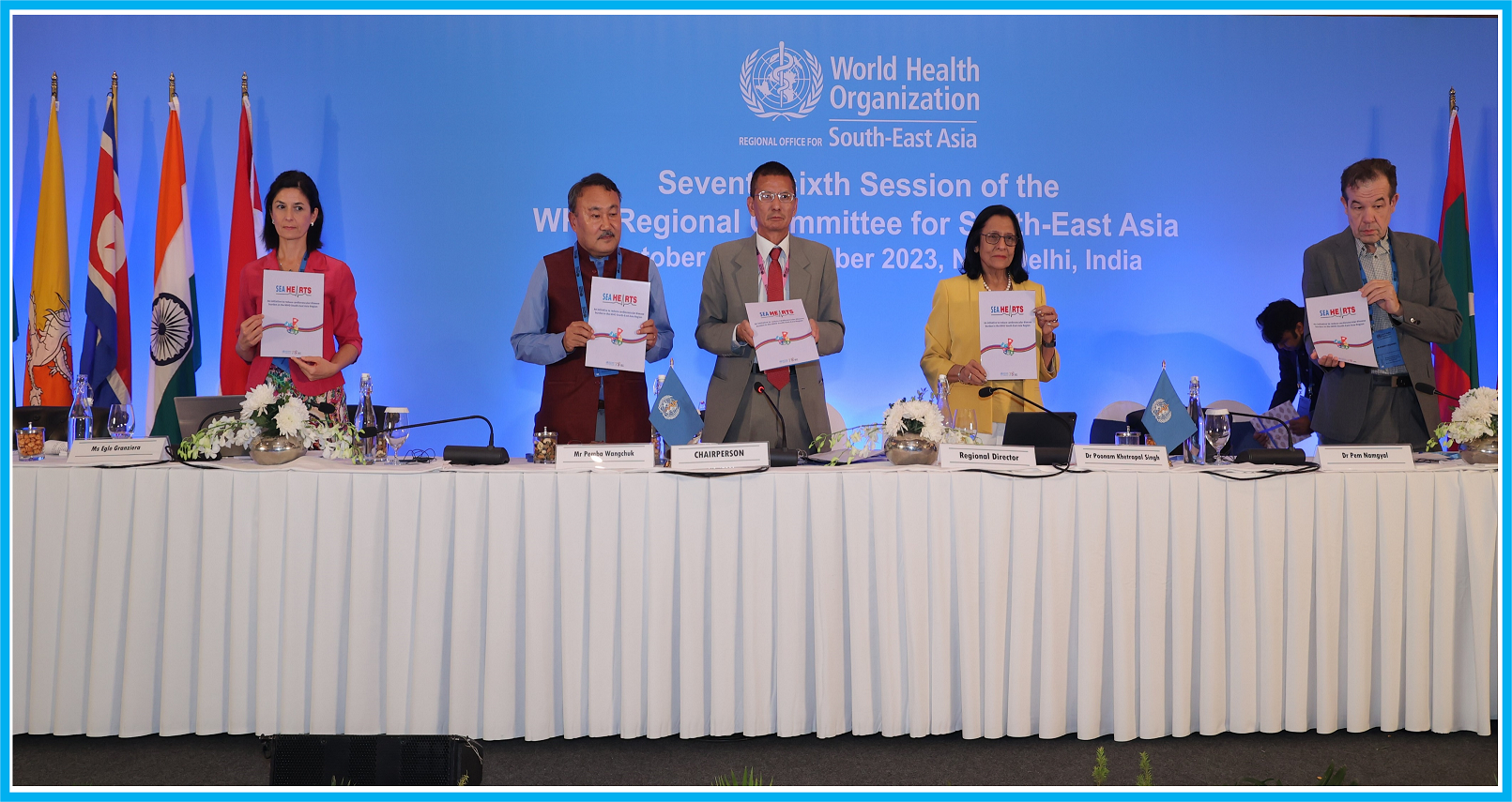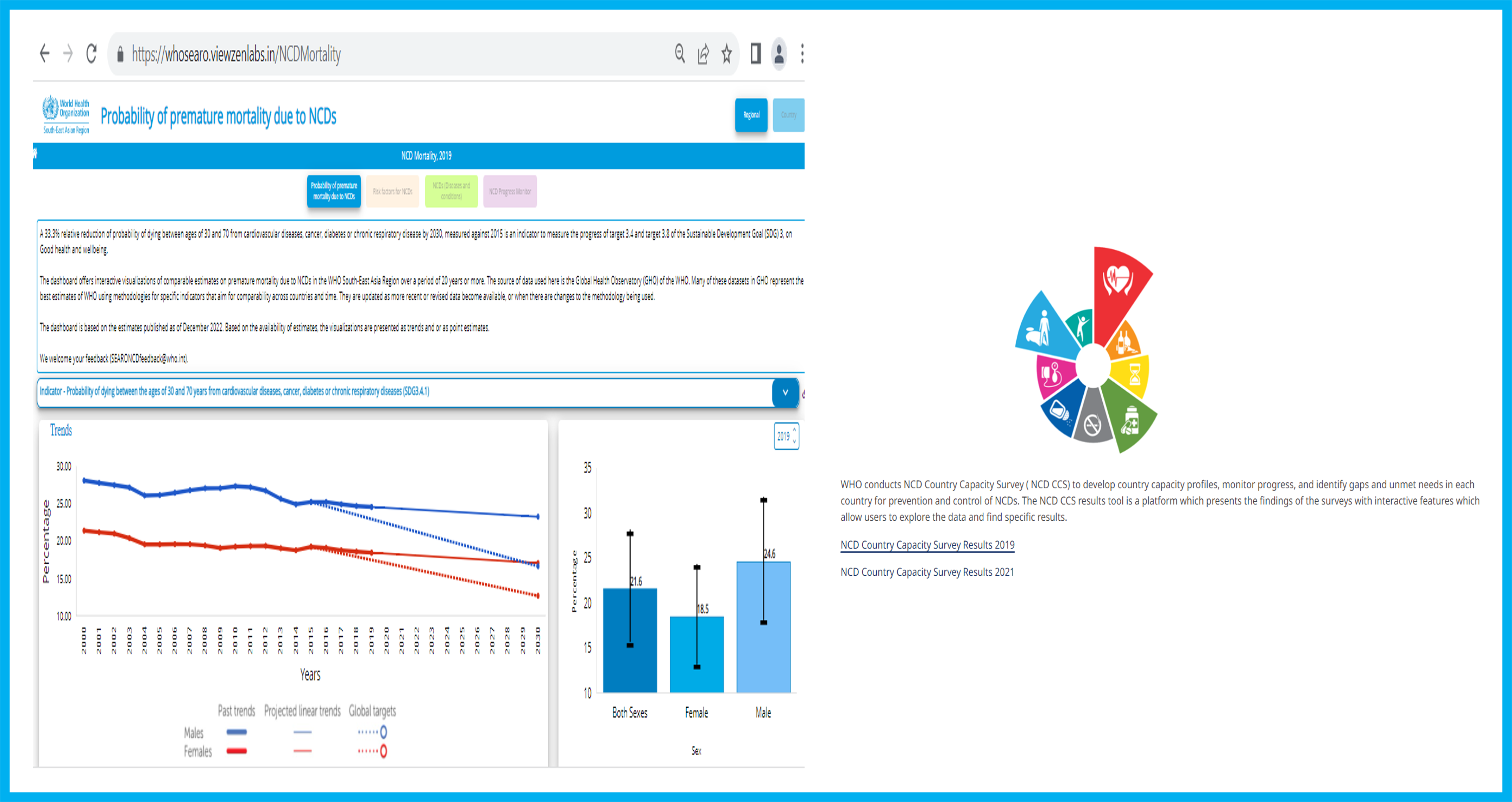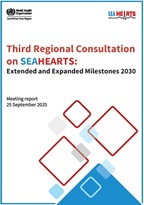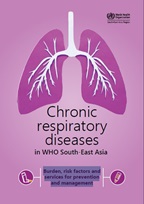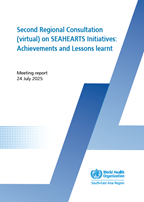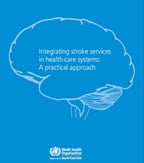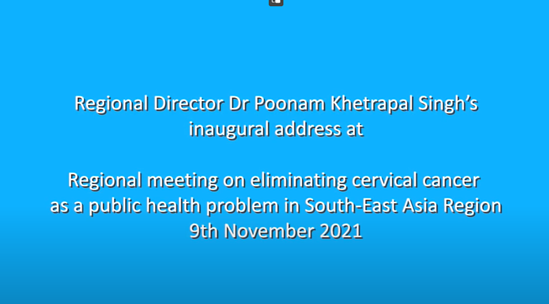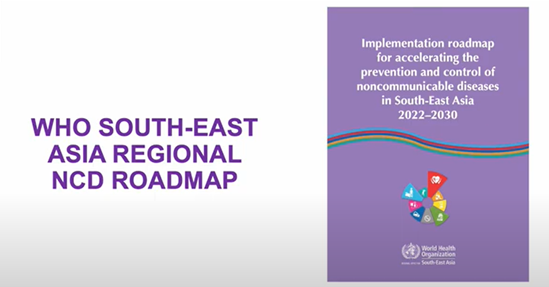Noncommunicable diseases
Noncommunicable diseases (NCDs), mainly cardiovascular diseases, cancer, diabetes and chronic respiratory diseases, impose a major and growing burden on health and socio- economic development in the South-East Asia Region.
In the region, 55% of all deaths are due to NCDs accounting for 9.5 million persons. Of particular concern is the fact that approximately half of NCD deaths occur prematurely, before 70 years of age. Cardiovascular diseases, including stroke, is the main contributor to premature NCD mortality.
NCDs can be prevented by reducing common risk factors such as tobacco use, harmful alcohol use, physical inactivity, unhealthy diets and air pollution.
Investing in NCD management is a critical pillar of the NCD response. Comprehensive management of NCDs includes early detection, screening, timely diagnosis and treatment, as well as access to palliative care for those in need. There is priority need to integrate evidence based, cost-effective NCD clinical interventions into primary health care systems, improving early identification of conditions and improving treatment outcomes. Evidence demonstrates that early intervention not only improves health outcomes but also represents a socio- economic investment by reducing the need for more complex and costly care later on.
The Fourth UN High-level Meeting on NCDs scheduled for 25 September 2025 marks a unique opportunity to adopt a new, ambitious and achievable political declaration on NCDs and mental health conditions towards 2030 and beyond. For details of the preparatory process visit https://covid.comesa.int/teams/noncommunicable-diseases/on-the-road-to-2025


